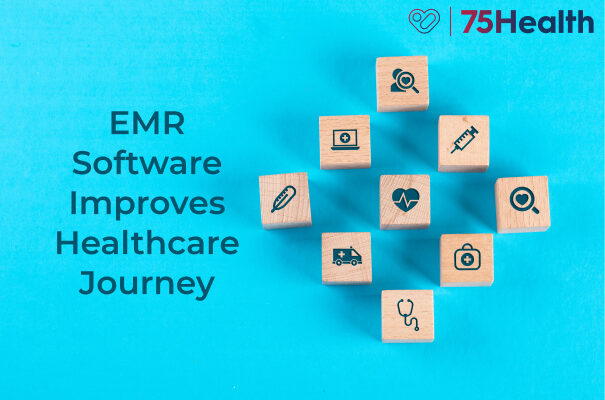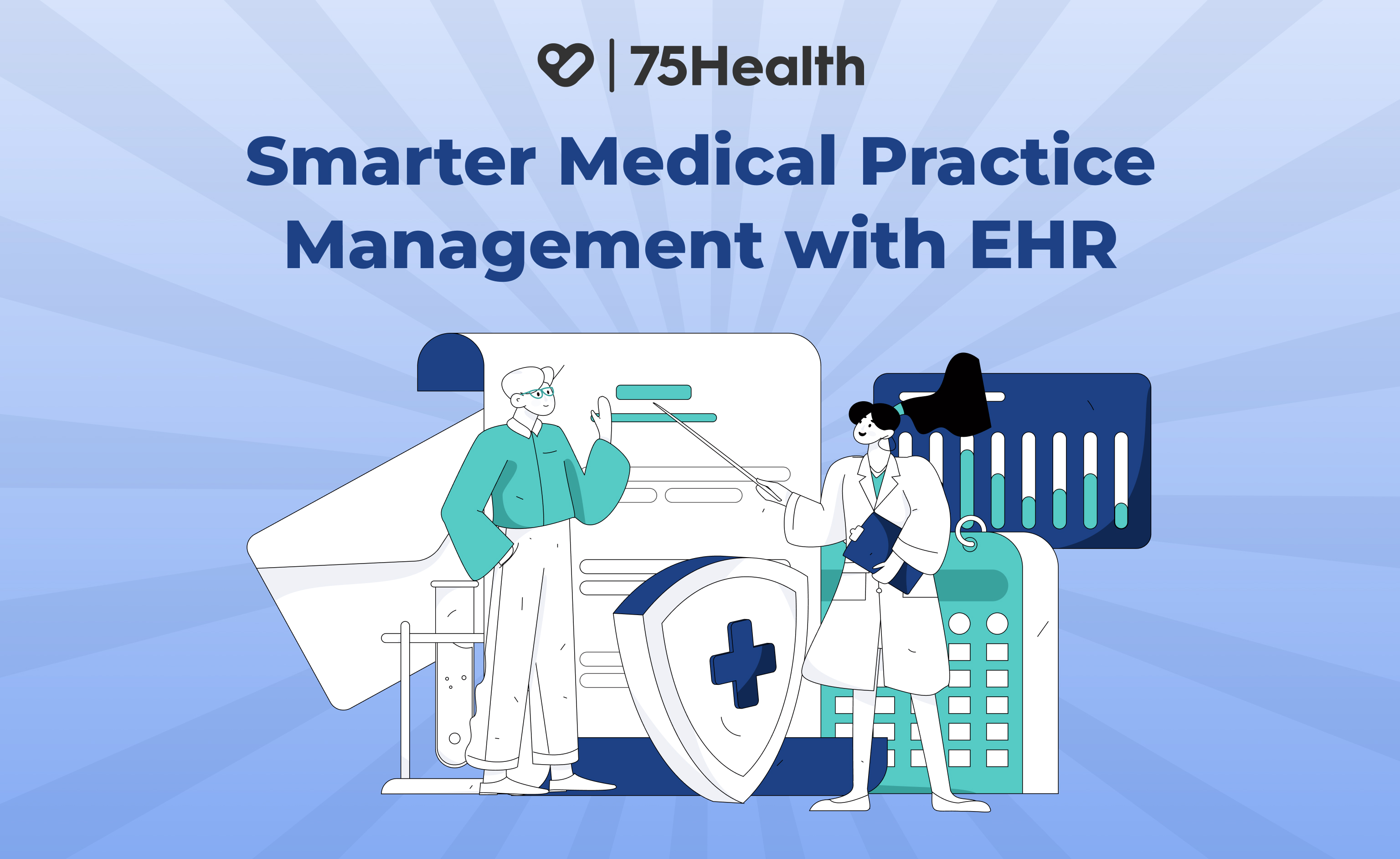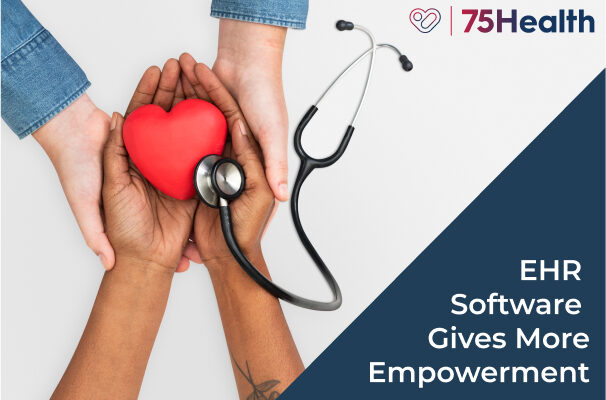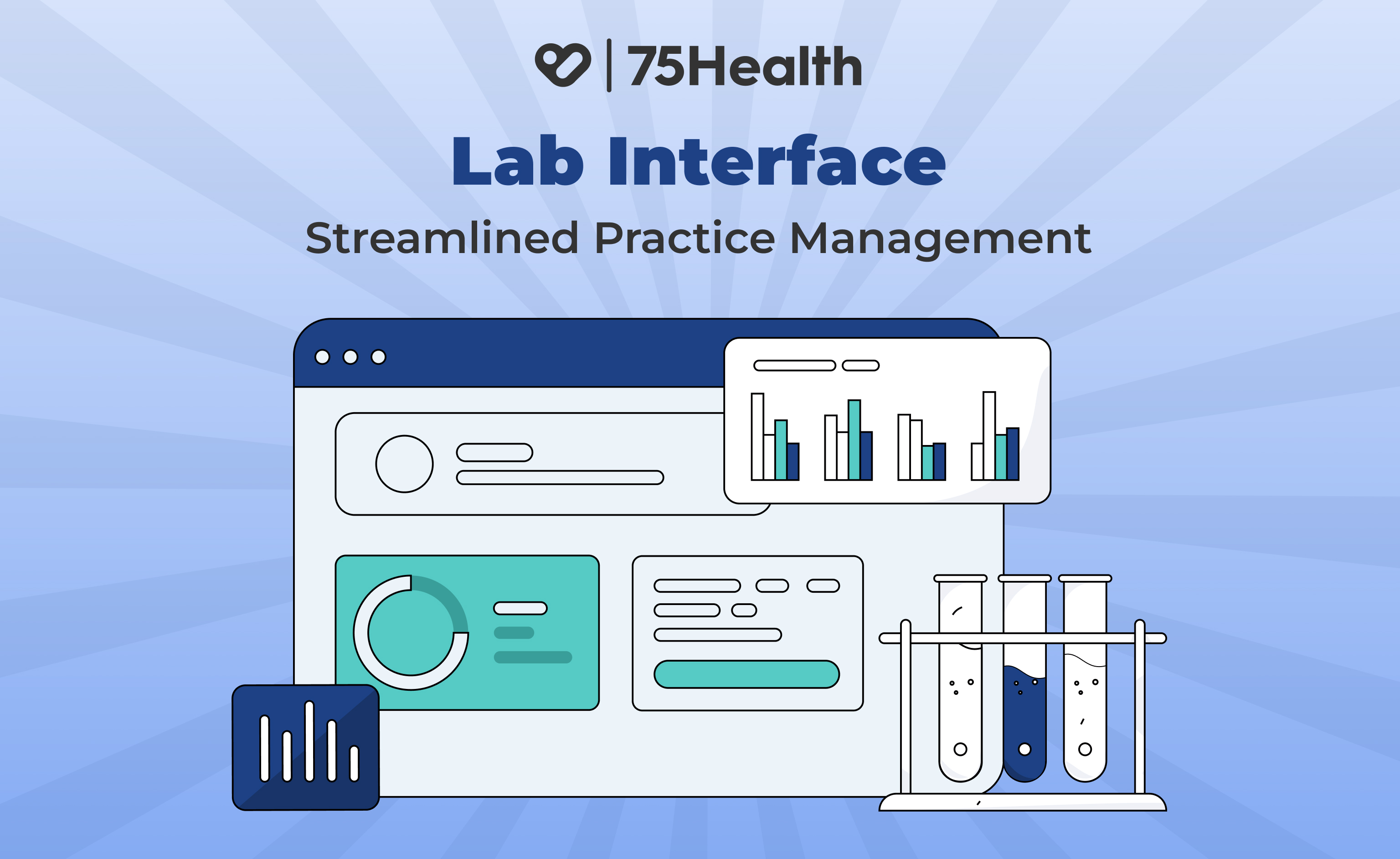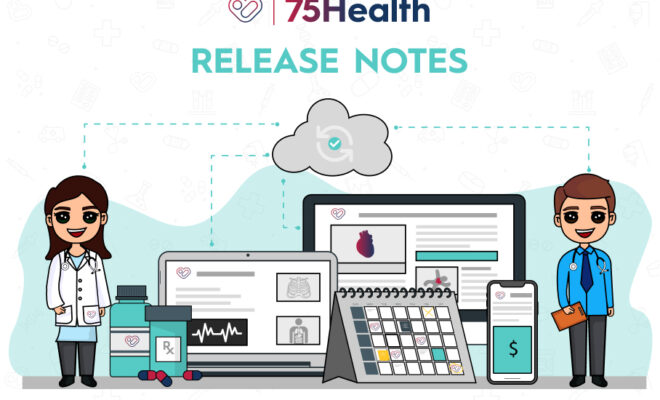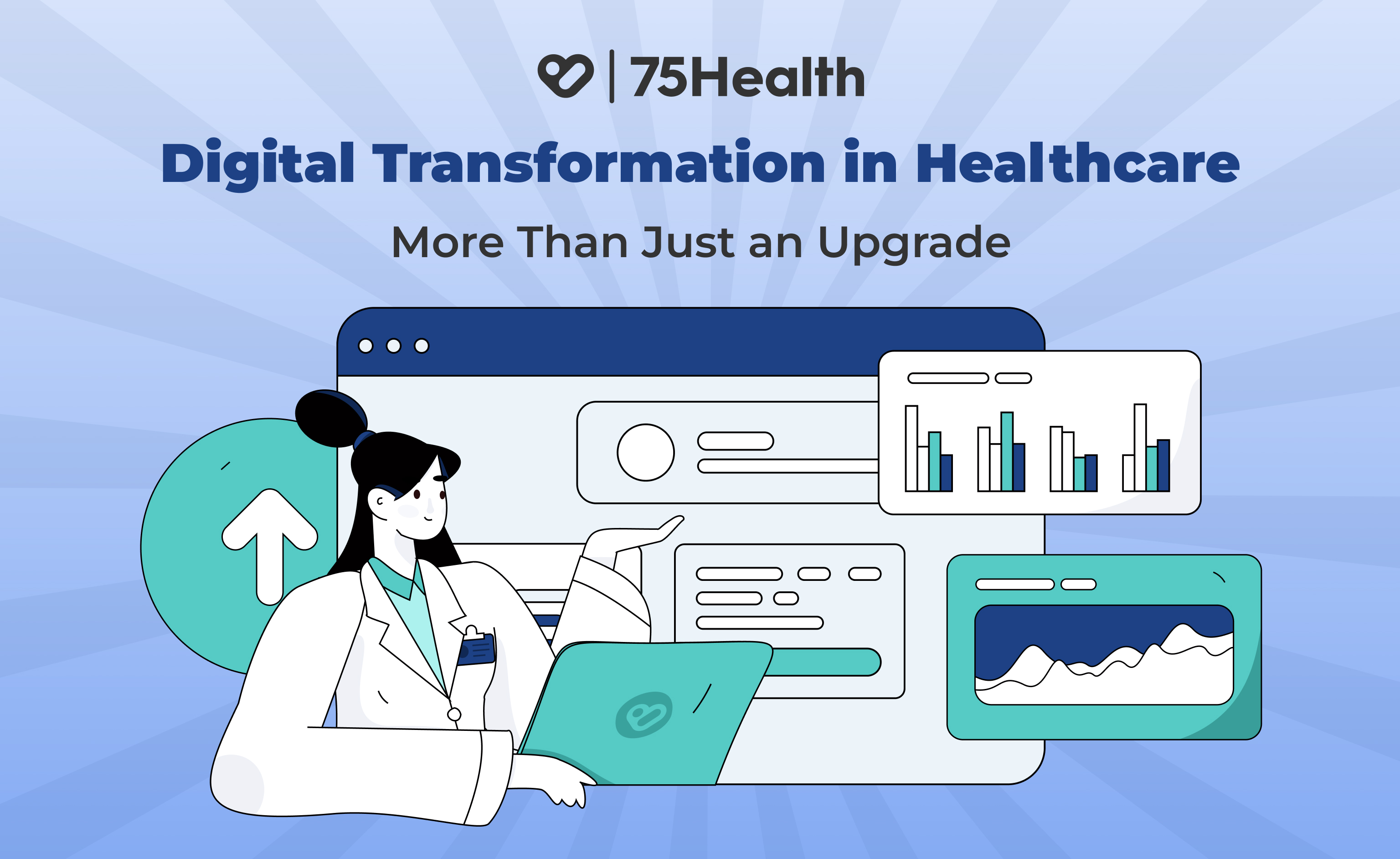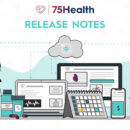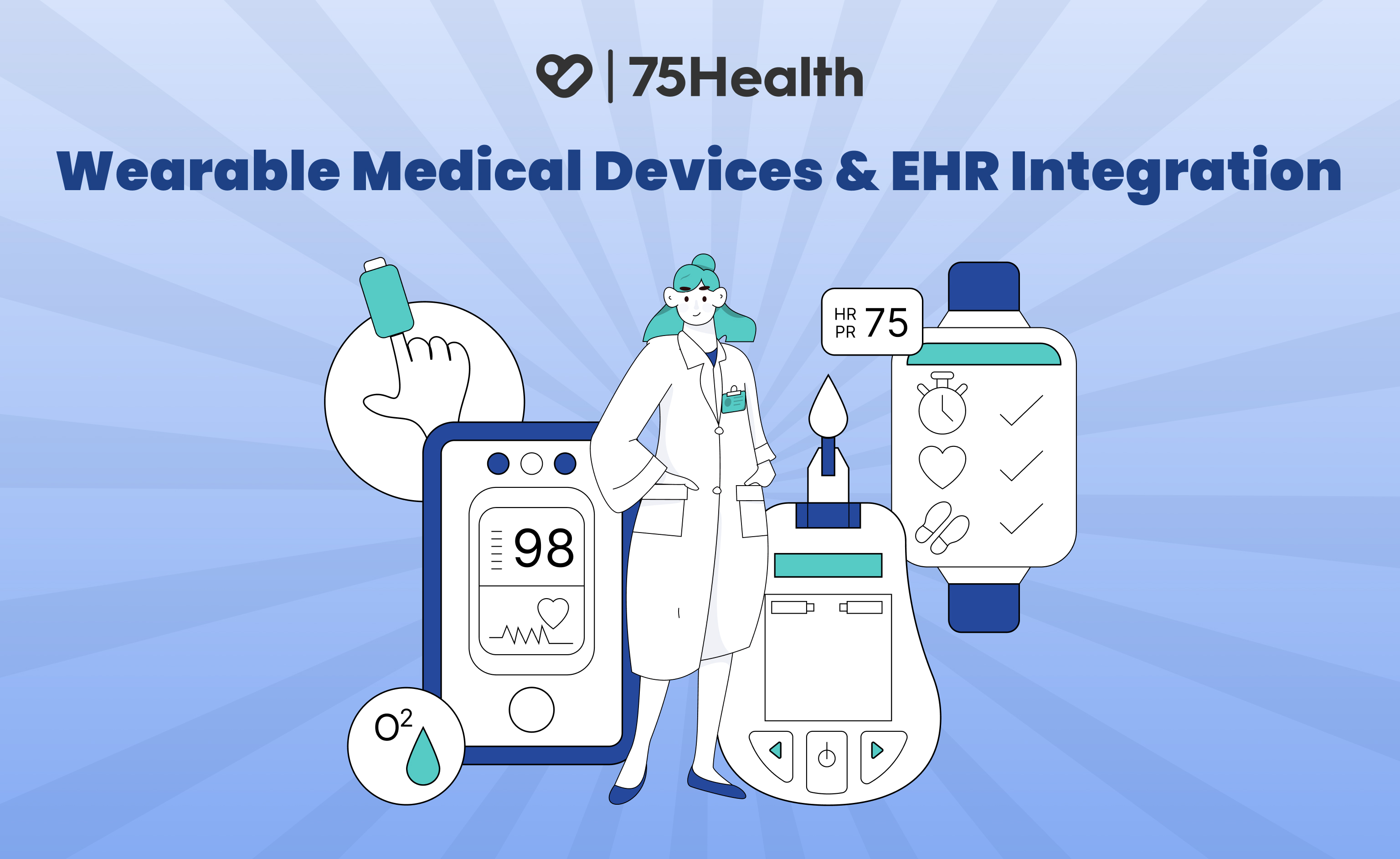What is FHIR and Why It Matters in EHRs?
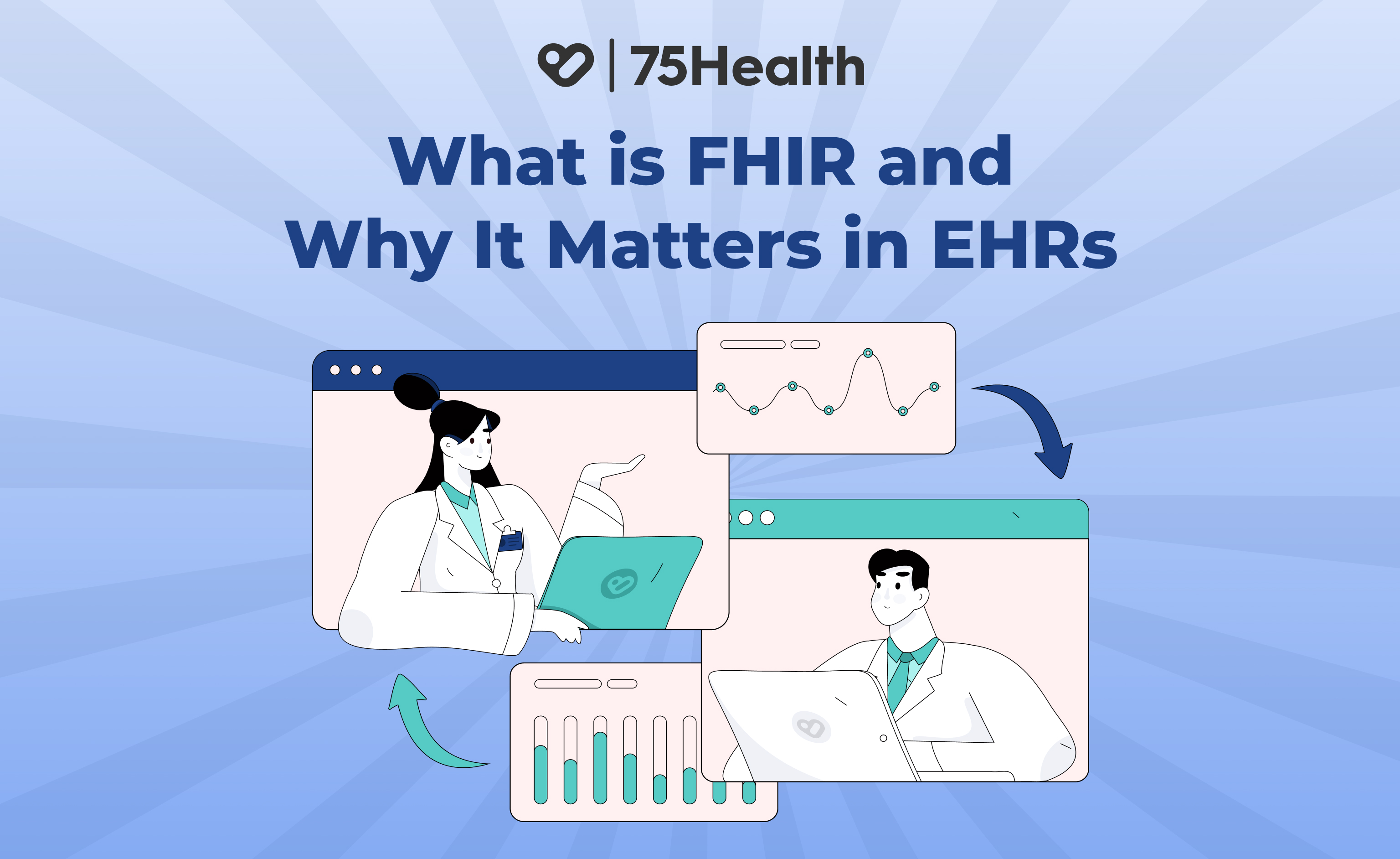
We all strive for structure and standardization because when things are organized, errors reduce and efficiency rises. Whether it’s in day-to-day work or critical processes, having a clear system makes everything smoother.
Now, imagine how much more important this is in healthcare, where the tiniest mistake in patient data could lead to serious consequences.
That’s why we always stand by Electronic Health Records (EHR). With our 75Health Cloud EHR, you get easy, anytime-anywhere access to ensure accurate, detailed clinical charting and documentation.
But here’s the next big question:
How do we share that data?
How do different systems understand each other without confusion?
Let’s dive in and get to know the key to smarter data exchange – FHIR.
At 75Health, we follow and support FHIR standards for seamless data exchange.
What is FHIR?
FHIR (Fast Healthcare Interoperability Resources) is a new data standard developed by HL7 (Health Level 7) to facilitate the exchange of healthcare information in a timely manner.
Once implemented, it is going to enable interoperability between disparate systems and allow hospitals, clinics, laboratories, as well as smartphone applications to share healthcare information seamlessly.
The Future of Healthcare with FHIR
FHIR is leading the way for a connected healthcare system, where the system, apps, and providers work together to give patients and professionals a complete view. It’s creating a future where healthcare becomes more intelligent, quicker and puts patients first.
How FHIR Benefits and Plays a Role in EHR Systems
When it comes to Electronic Health Records (EHRs), having the right data at the right time can save lives. But EHRs are only as powerful as their ability to connect and communicate and that’s where FHIR steps in.
- Smooth Data Exchange Between Systems
EHRs from different vendors often store data in various formats. FHIR acts as a translator helping these systems communicate . This enhances data accuracy and lowers the risk of duplications or mistakes.
- Real-Time Access to Patient Information
FHIR allows EHRs to gather up-to-date information from different sources labs, pharmacies and other hospitals, so healthcare providers always see the latest patient records.
- Personalized Care Through Better Insights
By organizing data into reusable resources (such as allergies, medications, lab results), FHIR enables EHRs to show relevant clinical info helping doctors make quicker, more informed decisions.
- Empowering Patients
FHIR-compatible EHRs can share data with patient apps. This means patients can monitor their health, check lab results, view prescriptions and manage their care, all from their phones.
- Easier Integration with Modern Tools
FHIR makes EHRs work better with AI systems, tools that help make decisions, software for billing, and apps on phones. This creates a more linked and robust system for healthcare.
- Better Security and Compliance
FHIR supports strict privacy controls, ensuring that EHRs can share data securely while staying compliant with global healthcare standards.
Benefits of FHIR
Conclusion:
As healthcare keeps changing, sharing data becomes more important than ever. FHIR is a bridge that connects systems, boosts teamwork and empowers both doctors and patients.
When we use FHIR, we’re not just making data sharing better, we’re creating a future where care is smarter, quicker, and more linked.
The path to better healthcare starts with systems that work together better and FHIR is showing the way.
